The Rules of Effective Procedure are the law, not internal recommendations (decision of the BCU)

When considering cases, courts may be guided solely by the provisions of the Constitution and laws of Ukraine. And in resolving procedural issues, no rules of court procedure, based even on the best recommendations, can be applied, as they are not a source of law.
During the meeting on 23 October (which this time was held online), the Bar Council of Ukraine considered the developments of the Dutch-Ukrainian project «Judiciary and Society in Ukraine» within the framework of the MATRA programme, which provide for the introduction of the Rules of Effective Procedure in Commercial Courts, Recommendations for Effective Administrative Procedure, and Rules of Effective Procedure in the Kyiv Court of Appeal.
The documents were prepared with the aim of improving the efficiency of court proceedings, facilitating the consideration of cases within a reasonable time, avoiding possible abuse of procedural rights by parties to proceedings and introducing uniform approaches to resolving procedural issues in the course of proceedings. According to the authors, the recommendations should be applied to all procedural issues that are not clearly regulated by the procedural law.
«These recommendations are designed to fill in the gaps in the procedural law. In other words, we are being offered new rules of law that should replace the procedural law in all major types of court proceedings. This is unacceptable, as it completely negates the national doctrine of law, - said Oksana Kadenko, a member of the Bar Council of Ukraine. - The project legalises individual practice, which is called recommendations. In essence, it creates binding rules of court procedure that are not enshrined in any legal act».
She gave one example of contradictory regulation. «The Recommendations, which are supposedly designed to expand human rights, propose to exclude from the list of grounds for challenging a judge the registration of a statement about a criminal offence. But this narrows the rights, the member of the BCU is convinced. - The authors assume responsibility for narrowly interpreting the provisions of the procedural law and giving imperative instructions that we have no right to consider as rules of law».
Among other things, O. Kadenko is convinced that when recommendations are imperative, there is a substitution of concepts, and lawmaking is carried out by an entity that has no right to do so.
Hanna Lazarchuk, a member of the BCU, drew attention to the range of entities to which such documents may apply. «I would like to remind you that we have already considered a similar issue when we received the rules of conduct in courts. If we consider today's drafts as certain rules of conduct in courts, then these rules should apply only to judges and court staff, - said the member of the BCU. - In no case should the recommendations replace the procedural rules for persons applying to the court, not to mention lawyers and prosecutors».
H. Larazchuk also noted examples of inconsistencies between the recommendations and procedural norms. «The courts are offered to accept only printed documents prepared in a text editor. Written documents should not be accepted because they are unreadable. But each of us has faced situations when we need to immediately write a motion in court and submit it to the court, - says the lawyer, - and after the approval of such «rules», we are deprived of this right».
She gave another example of the procedure for setting a court date. Thus, if the court has already set the date of the hearing, you can ask to change it in accordance with the recommendations only 10 days in advance. «It turns out that if you apply later, the court must refuse to satisfy such a request», - comments H. Lazarchuk. - But we don't know what can happen in ten days, two days or three hours before the hearing. Perhaps another client of the advocate will be detained and he will have to urgently work on this particular case, because it will involve the deprivation of liberty of a person. Is this not a valid reason for postponing a court hearing in a civil or administrative case? Of course it is».
In this context, the position of the Chief Justice that the parliament is working to improve the judiciary, but the judiciary can resolve this issue on its own by approving such standard rules of conduct in courts, seems interesting. «It cannot, because they concern not only the judiciary, but also you and me», - a member of the BCU concluded.
Lidia Izovitova, the President of the UNBA, said that on 12 October this year, the Judiciary and Society in Ukraine project held an international conference on «Court Procedural Rules as a Methodology for Ensuring Predictability and Transparency of Justice». In particular, Chief Justice Stanislav Kravchenko said that the rules for effective court proceedings developed under the project are currently being tested in the courts of Kyiv, Vinnytsia, and Odesa. He expressed his belief that the introduction of these rules will ensure transparency, resource saving and security for the participants in the process. The Chairman of the Council of Judges also noted that the work on the rules is almost complete and they will become a guide for everyone involved in the administration of justice. The project was also supported by the Ambassador of the Netherlands to Ukraine and the Prosecutor General.
«So both judges and prosecutors took part in the event. However, they decided not to invite representatives of the Bar, which is mentioned in the «Justice» section of the Constitution, - said Izovitova. - Obviously, the organisers, who did not want to hear criticism, knew the content of our preliminary opinion on the court in Odesa».
The President of the UNBA reminded that the project within which the rules and recommendations were prepared was launched a long time ago and the results were already tested on the basis of courts in Odesa region. «Back then, the UNBA criticised the project. Not only did we not support it, but we generally expressed the position that it could not exist as a model of Ukrainian judicial proceedings. Many years have passed since then, and today they are trying to implement the idea, but without the participation of the bar. Obviously, someone behind the scenes has communicated our long-standing position on this issue», - she stressed.
Following the discussion, the members of the Bar Council of Ukraine declared the rules and recommendations prepared within the framework of the project «Judiciary and Society in Ukraine» unacceptable. The rules set forth in such documents may apply only to judges and court employees, but not to other parties to proceedings.
The Chief Justice of the Supreme Court, the Kyiv Court of Appeal, the Council of Judges of Ukraine, the High Council of Justice, the Verkhovna Rada Committee on Legal Policy, the Prosecutor General of Ukraine, and the Ukrainian Parliament Commissioner for Human Rights will be informed of this conclusion.
Popular news
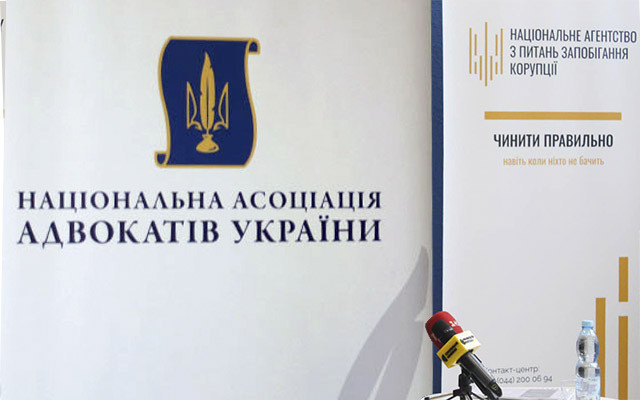
Self-government
BCU: NACP initiatives regarding advocacy are unconstitutional interference
The Bar Council of Ukraine has condemned the initiatives to reform the advocacy proposed by the National Agency for Corruption Prevention as direct, gross, and systematic interference by the executive branch in the activities of an independent constitutional institution.

Self-government
UNBA program for implementation of the Roadmap on the rule of law published
In order to ensure the implementation of measures set out in the Roadmap on the Rule of Law, the Bar Council of Ukraine approved a program for its implementation in relation to the reform of advocacy.
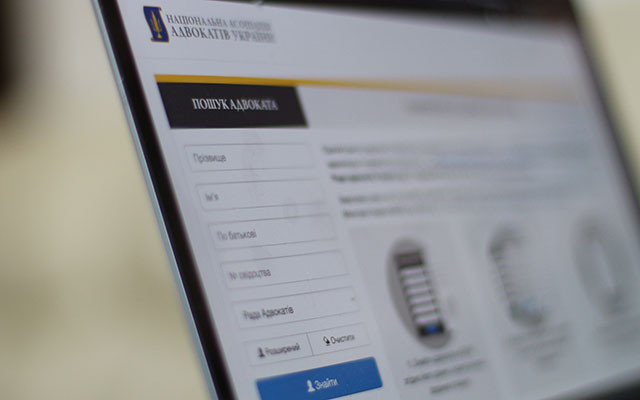
URAU
Access to advocate contacts in URAU has been restored
The Bar Council of Ukraine has opened up public access to data from the Unified Register of Advocates of Ukraine, which was closed at the start of the full-scale invasion in 2022. The decision was made at a meeting on December 12–13.
Self-government
Members of the QDCB are not required to submit declarations - BCU
Bar Council of Ukraine examined the legal status of members of bar self-government bodies and found that they are not required to submit declarations of persons authorized to perform functions of state or local self-government.
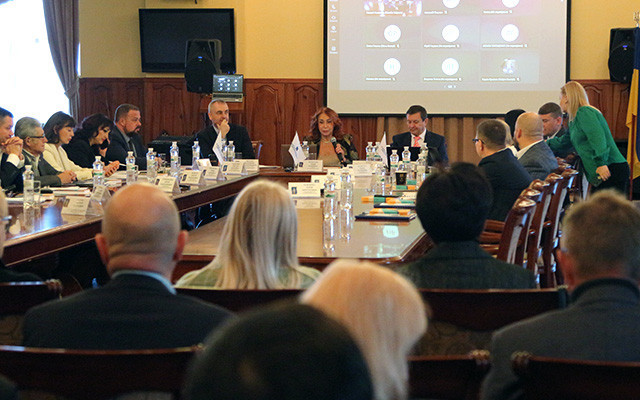
Self-government
BCU has identified 12 areas for implementing the Roadmap for advocacy
During its meeting on December 12, the Bar Council of Ukraine considered the Roadmap on the Rule of Law, approved by Order of the Cabinet of Ministers of Ukraine No. 475-r dated May 14, 2025. The document provides for the development and adoption of a draft law on improving the legal regulation of advocacy by the fourth quarter of 2026.
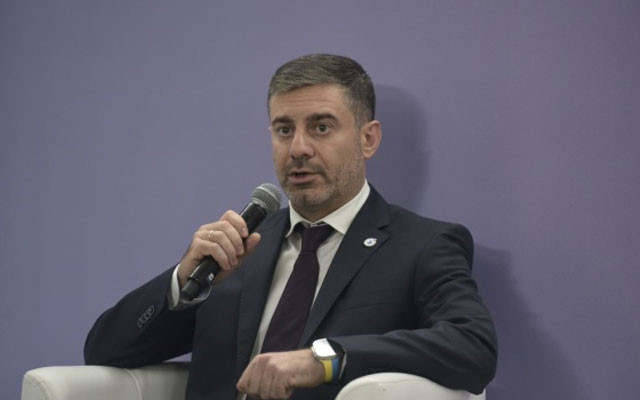
Guarantees of the practice of law
The Ombudsman acknowledged the problem of violation of the human right to legal aid in the TCC
The Verkhovna Rada Commissioner for human rights Dmytro Lubinets confirmed the existence of a problem with ensuring the constitutional right to professional legal assistance in territorial recruitment and social support centers.

Guarantees of the practice of law
The agreement on the provision of legal assistance is not public – BCU
Bar Council of Ukraine in its decision No. 111 dated October 18, 2025, responded to questions regarding the possibility of concluding legal assistance agreements by accepting a public offer, using an electronic form of the agreement, and posting information about legal assistance on websites.
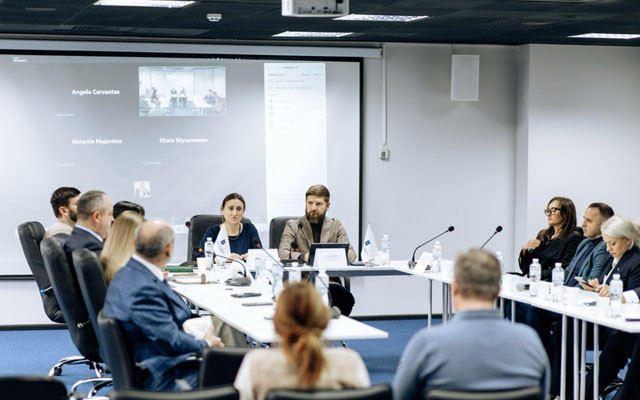
Discussion
Why preventive measures have turned into preventive punishment in Ukraine: round table discussion
The European approach, enshrined in the CPC, provides for detention as an exceptional preventive measure: courts must prove the impossibility of milder alternatives and carefully assess the risks. In practice, however, it is increasingly being applied almost automatically, eroding standards of freedom.
Publications

Censor.net Protecting advocates – protecting justice: addressing concerns about the new law

Ihor Kolesnykov A BRIEF SUMMARY REGARDING THE APPLICATION OF THE ORDER ON EXTENDED CONFISCATION IN LATVIA REGARDING FINANCIAL ASSETS OF…

Valentyn Gvozdiy WORKING IN A WAR ZONE

Lydia Izovitova Formula of perfection

Sergiy Vylkov Our judicial system is so built that courts do not trust advocates

Iryna Vasylyk Advocacy in the proclamation of Independence of Ukraine

Oleksandr DULSKY When we cross the border of the Supreme Anti-Corruption Court, we get into another department of the National Anti-Corruption…

Vadym Krasnyk The UNBA will work, and all obstacles and restrictions are only temporary inconveniences
